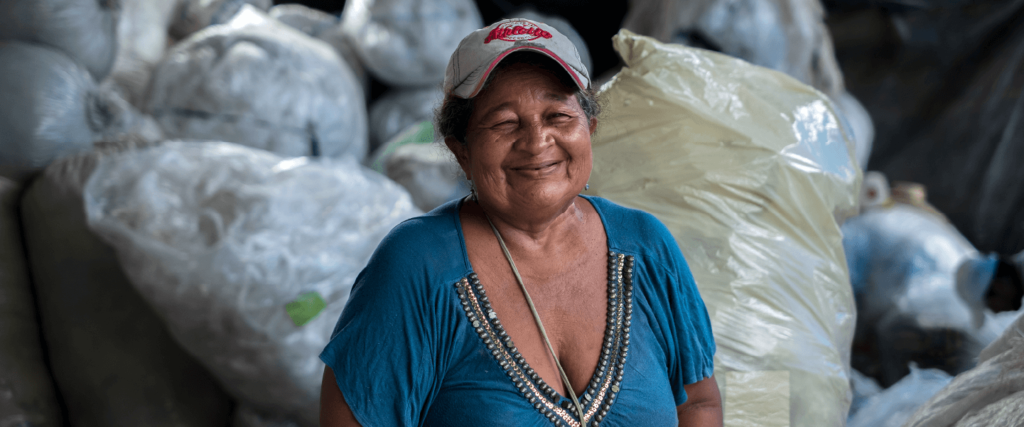The work of a grassroots recycler goes beyond contributing to the cleanliness of cities, since they are one of the main people responsible for advancing the circular economy and caring for the environment.
In Ecuador, there are around 50,000 people who are dedicated to recycling and live from it. Some belong to organizations and projects that support their work, but many of them do not. The vast majority live on less than 120 dollars a month, with which they must support their families. In addition, unfortunately they lack formal recognition that leads to receiving the benefits of any worker, such as social security. Despite this, every day they continue to walk the streets and the “garbage” containers, recovering the material that thousands of citizens throw away.
However, little by little, governments are becoming aware of the importance of their work for society and the planet and seek to recognize them for what they are: key actors for change and for turning cities into more responsible spaces with regard to natural resources.
What does their work consist of and what is their impact on the economy and the environment? We explain it to you below:
Who are they and how do they do their job?
Grassroots recyclers are workers who belong to the recycling and circular economy value chain. Their work consists of the recovery and sale of materials that are considered waste and whose destination is garbage containers. They mainly recover plastic, glass, covers, cardboard and scrap, since these materials are suitable materials to be used in the manufacture of others.
Grassroots recyclers are capable of correctly managing waste and preparing it to give it a second life, since, at the time of collecting it, they separate it, clean it and send it to collection centers or suppliers of companies that are dedicated to transforming these materials, such as our Enkador manufacturing plant, which works with a network of more than 5,600 recyclers and receives more than 500,000 PET bottles daily. Unfortunately, grassroots recyclers are not inserted in the labor market nor has their management been formalized and recognized as an official profession. Their work is unpredictable and what they earn daily is also unpredictable. A recycler can start his day in the early hours of the morning or as soon as dawn and last until dusk, since his goal is to find as many materials as possible to sell and guarantee his profit for the day.
Their routine is to go and enter each container in their area, choose and separate what they can take advantage of, store it and load it to a collection center. It is estimated that, on average, recyclers carry a ton of garbage on their shoulders per month. In this process, they themselves have to provide themselves with inputs that facilitate their work, such as gloves, caps, motorcycles, tricycles, sacks, etc. According to the Inter-American Development Bank (IDB), the almost two million recyclers in Latin America contribute more than 50% of the material that is recovered. With all this process, these actors achieve what many government actors are looking for: that the circular economy is really put into practice, reinserting waste back into production, reducing the need to produce new materials, and with this, contributing to reduce oil exploitation and CO2 emissions in the environment.
Origin’s contribution to recyclers
As Origin, we turn our gaze to this indispensable group for society, and we work hand in hand with them to continue promoting recycling, we guarantee fair payment for the material collected, and we encourage their productivity and competitiveness to promote the formalization of their trade.




